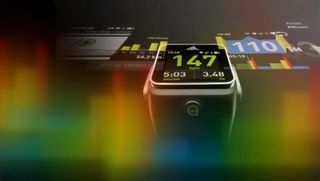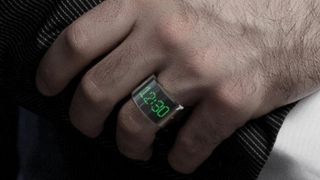How wearables became the key tech trend of 2014
Many people have become inseparable from their technology, so what's the next step for tech you can wear?
Electronically wired clothing could recognise compatible nearby outfits of the same brand, direct the wearer to certain parts of a store, or light up in response to offers in-store. If outfits were pre-programmed to electronically match and provide extra functions or benefits when combined, it could entice customers to purchase a complete set rather than just a single item.
Fitness tech you won't notice
Wearable fitness technology has been around for a few years now, with Nike+ making fitness tracking tech in collaboration with Apple, later succeeded by the popular FuelBand. Since then fitness bands such as those from Fitbit have become increasingly popular and are now a common sight at gyms.
Of course the goal of the gym-going lifestyle for most is to look good, and whilst the FuelBand isn't particularly unattractive, invisible and unnoticeable tech would be the preferred option.
Adidas are about the closest to this with the Adidas MiCoach Tank Vest, which includes a heart rate sensor on its inner support bra. This sensor can pair with Adidas' own Smart Run smartwatch to provide highly accurate heart-monitoring data.

As integrated circuits diminish in size and improve in performance, athletes will be transmitting real-time data back to their personal trainers, and could even provide statistics for TV commentary and the media to digest and use in their analyses.
Nike and Adidas have already integrated their fitness-tracking tech into trainers without compromising on the look, feel or weight of them, so it's not going to be far off before you're buying all your gym-wear with barely noticeable technology that tracks your heart-rate, movement or water loss.

There are so many fitness bands, smartglasses, smartwatches and other wearable technology on the horizon, that we're no doubt on the brink of wearable technology becoming mainstream and affordable.
Get the best Black Friday deals direct to your inbox, plus news, reviews, and more.
Sign up to be the first to know about unmissable Black Friday deals on top tech, plus get all your favorite TechRadar content.
There are a couple of prominent technical challenges that stand in the way of many futuristic ideas: limiting battery technology and circuit shrinkage. Both of these aspects will inevitably improve over time, allowing manufacturers to integrate devices further, so that you'll eventually be wearing clothing that's not just smart-looking, but also smart between the seams.
- Now why not read Google Android Wear: what you need to know
Most Popular


